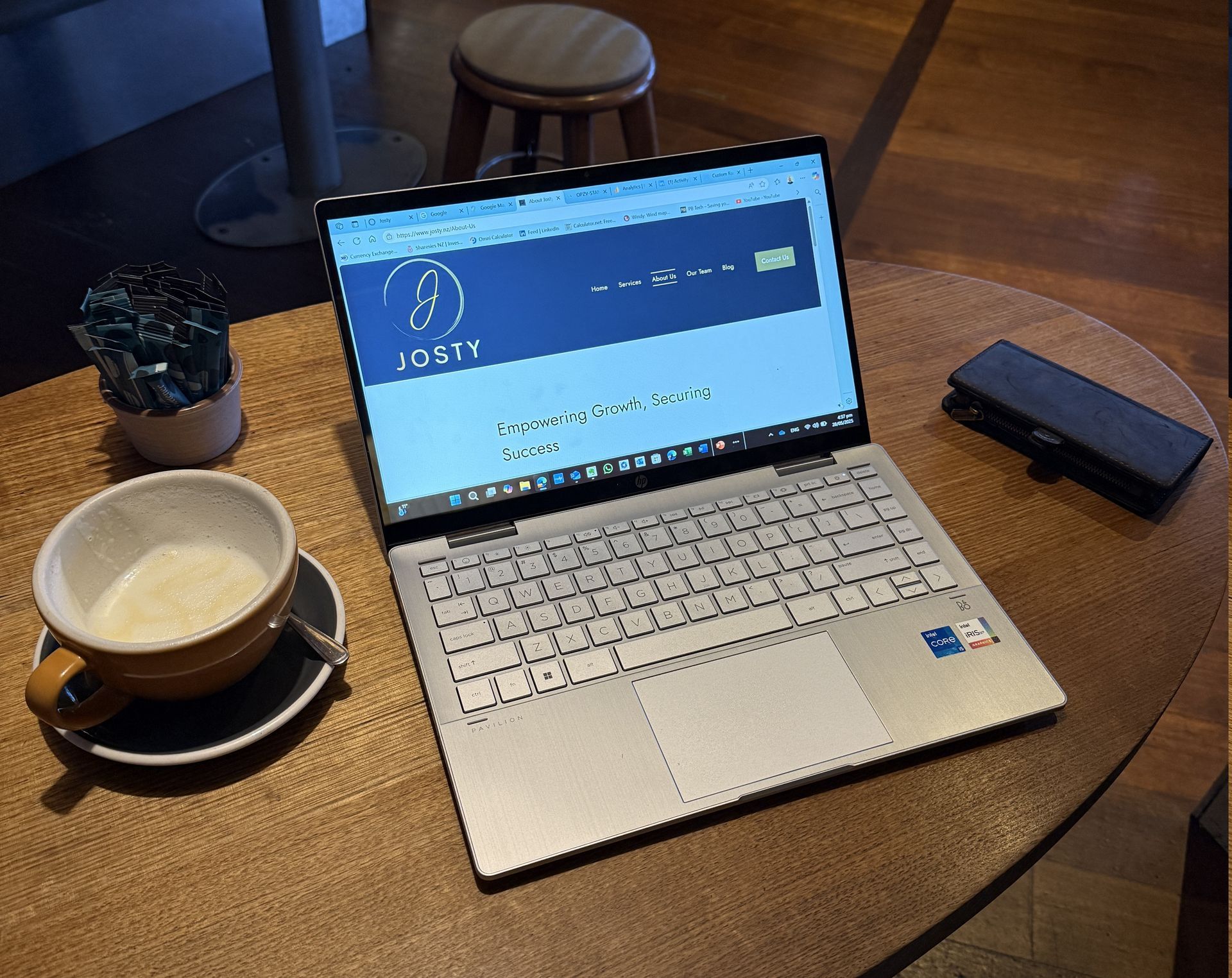Benefits of Remote Work for Focus, Flexibility & Output
Remote work isn’t just a trend it’s a smarter way to work for roles that allow it. It removes commute stress, reduces distractions, and increases flexibility, productivity, and employee satisfaction. As someone who works remotely, I’ve seen firsthand the clarity, focus, and freedom it brings to both business performance and personal wellbeing.
Introduction
The way we work has fundamentally shifted. What began as a temporary solution during global disruptions has now cemented itself as a permanent feature of modern business: remote work.
As an experienced business consultant, I've spent years working outside traditional office walls from home, cafés, airports, and even remote regions of New Zealand and around the South Pacific. And I’ve discovered that for roles where it fits, remote work isn’t just good it’s game changing.
In this post, I’ll break down why working remotely is a powerful strategy for both employees and employers. I’ll also share my personal experience and how it’s helped me eliminate unnecessary stress and become more productive than ever.
1. No Commute = Less Stress, More Time
Let’s start with the obvious: eliminating the daily commute. Whether it’s 20 minutes or two hours, commuting consumes time and energy before your actual workday even begins. It contributes to:
- Stress and fatigue
- Increased risk of lateness
- Reduced work-life balance
- Morning and afternoon clock-watching
My experience? Without the pressure of beating the traffic, I start my day more focused and end it with more energy. I don’t plan my afternoon around the 4:30pm escape window anymore instead, I work through when I’m most productive and step away when I choose. It’s a different mindset one rooted in results, not routines.
2. Fewer Office Distractions = Sharper Focus
We often talk about collaboration and culture in offices, and they are important. But so are uninterrupted blocks of deep work.
In an office, distractions are everywhere:
- Unplanned meetings
- Constant chatter
- Background noise
- Interruptions from coworkers
Working remotely gives you control over your environment. I can choose quiet spaces when I need to concentrate, or social ones when I want energy. That freedom translates directly into sharper thinking, better decision-making, and higher-quality output.
3. Flexibility = Better Work-Life Integration
Remote work isn’t about working less it’s about working smarter. For many roles, success is measured by outcomes, not hours.
- Start early or work late depending on your rhythm
- Take breaks when needed without guilt
- Handle errands without burning leave
- Be more present for family
For me, the flexibility of remote work means I can attend client meetings across town or the country without losing a day of productivity. I work on flights, in airport lounges, or at a beach café with Wi-Fi. Business keeps moving I’m just not chained to a desk to make it happen.
4. Remote Work Supports Business Mobility
Another overlooked benefit is mobility the ability to work wherever opportunity takes you.
Whether I’m travelling for research, visiting a supplier, or working with a client onsite, I stay connected. Cloud tools, messaging platforms, video calls, and digital collaboration make it possible to operate as if I were in the office but without being stuck there.
This mobility creates:
- Faster response times
- Broader networking
- Stronger client relationships
- The ability to seize spontaneous opportunities
In essence, remote work turns your business into a moving vehicle rather than a fixed office. And that opens doors to agility and growth.
5. Reduced Overheads for Businesses
Let’s not forget the benefit to employers and business owners. A remote-first approach can drastically reduce:
- Office rent and utilities
- Equipment and supplies
- Commuter subsidies or parking spaces
- Sick days (less exposure = less illness)
And with tools like Slack, Zoom, Asana, Teams, and Miro remote teams can work just as efficiently (if not more so) than their in-office counterparts.
The best part? You’re not limited to hiring local talent. You can find the best person for the role regardless of geography.
6. Increased Autonomy and Responsibility
Remote work requires and builds autonomy. With no one watching over your shoulder, team members are trusted to manage their time and tasks.
This fosters:
- Ownership of results
- Higher motivation
- Stronger time management
- More satisfaction in work
For me, autonomy is everything. It’s why I’m able to balance consulting, writing, strategy, and research without burnout. I’ve learned to structure my day to match my peak performance hours, not office expectations.
7. Mental Health and Wellness Benefits
Let’s be real, modern work is demanding. Long hours, traffic, noise, and burnout are real threats.
Remote work helps mitigate those risks by:
- Allowing personalised work environments
- Supporting healthier routines
- Enabling regular breaks and movement
- Providing time to reset between tasks
When I work from a quiet café with natural light and good coffee, I feel better and work better. And when my brain is clear, my output soars.
Final Thoughts: It’s About Trust, Not Location
Remote work isn’t about escaping work it’s about doing work in a way that suits the task and the person.
If your role allows for it, remote work is not only possible it’s probably the smartest option for productivity, wellbeing, and long-term sustainability.
I’ve built a business, supported dozens of clients, and made some of my best strategic decisions not in an office, but from wherever I was best positioned to think clearly and act quickly.
So the question isn’t “Why work remotely?” it’s “Why not?”
Looking to build a
smarter, scalable business with flexible systems and resilient strategy?
👉 Get in
contact to connect with a business expert who works how you do intelligently, strategically, and remotely.
Post written by Jason Jost

